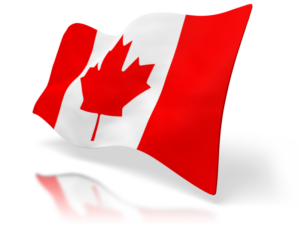A New Era for Canada? Chrystia Freeland’s Controversial Proposal
In an unexpected twist in the political landscape, Chrystia Freeland, a prominent figure known for her ties to Klaus Schwab, has declared her ambitions for the Canadian Prime Minister’s office. Freeland’s bold statements suggest that she is envisioning a radically different role for Canada on the world stage—one that involves positioning the country as a key player in global security amidst rising tensions with the United States.
Freeland has publicly asserted that the “Free World” is turning to Canada for leadership at this critical juncture. In her vision, Canada must bolster alliances with NATO, align closely with European powers such as Britain and France, and prepare to stand firm against what she perceives as a growing threat from the U.S. Her remarks have sparked intense debate not only within Canada but across international borders.
A Call to Action for Democratic Allies
In a recent speech, Freeland stated:
“The U.S. is turning predator, and so what Canada needs to do is work closely with our democratic allies, our military allies. I would start with our Nordic partners, specifically Denmark who is also being threatened, and our NATO European allies. I would be sure that France and Britain were there who possess NUCLEAR WEAPONS and I will be working urgently with these partners to build a closer security relationship that guarantees our security in a time when the United States can be a threat.”
These comments reveal not just Freeland’s perspective but also reflect a significant shift in her country’s foreign policy stance. While Canadian sovereignty and diplomatic rules have historically favored cordial relations with the U.S., her approach suggests that Canada must prepare for a world where collaboration with traditional allies is prioritized at the expense of longstanding partnerships.
What This Means for Canada and Its Allies
As global dynamics shift, Canada’s role on the international chessboard is becoming increasingly complex. Freeland’s vision indicates an urgent desire to forge a more defensive alliance among democratic nations, particularly in light of perceived instability in U.S. policy.
But what does this mean for the average Canadian and the broader economic implications? Here are several points to consider:
-
Increased Defense Spending: Freeland’s focus on military partnerships will likely prompt discussions about increased defense budgets and military readiness. This could lead to ripple effects in Canada’s economy, influencing everything from job creation in defense sectors to public spending on social programs.
-
Economic Repercussions: Strengthening ties with European allies and NATO partners could lead to economic realignment. Export markets might shift as military expenditure rises, and sectors tied to international defense contracts may see increased activity.
-
Public Opinion: The Canadian public’s reaction to Freeland’s proposals will be crucial. Many Canadians value their peaceful reputation and may view military alliances with skepticism. How her plans resonate with voters may shape her political future and that of the Liberal Party.
- Geopolitical Ramifications: If Canada were to take a more confrontational stance, it could strain relations with the U.S. and create ripples in North American trade agreements, impacting industries across the board.
Conclusion: Preparing for Change
As Freeland’s controversial proposals unfold, it’s clear that we are living in interesting times. Whether she can garner support for her radical vision remains to be seen, but one thing is certain: the potential for change looms large.
At Extreme Investor Network, we will be following this story closely, as the unfolding geopolitical and economic ramifications will undoubtedly affect our investment landscape. Stay tuned for in-depth analyses and insights as we navigate these turbulent waters together. Join us as we explore what Canada’s potential new direction means for investor confidence and global economic stability.

